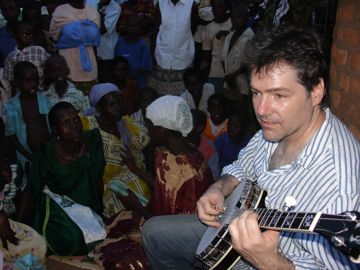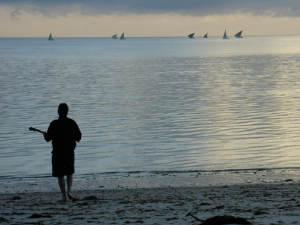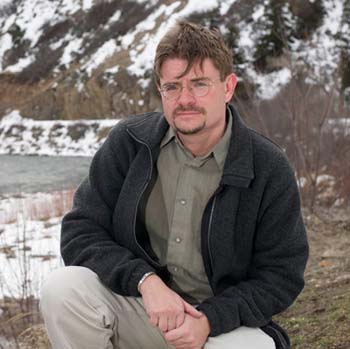 Banjo virtuoso Béla Fleck has a reputation for taking his musical instrument all over the musical map. His latest project takes it across the globe.
Banjo virtuoso Béla Fleck has a reputation for taking his musical instrument all over the musical map. His latest project takes it across the globe.
World Hum: Congratulations on your Grammy wins. Do you think that kind of attention helps open up Americans to more music from around the world?
Béla Fleck: I think it will open things up to some people that know me and are curious. I think the Grammys probably don’t change that much unless you get to perform on the show. But it is an excellent tool for us to use to get press and other outlets to take the project seriously—which helps us get more people to the concerts, etc.
What inspired your musical collaborations in Africa? I’ve often heard the banjo is descended from an African instrument. Were the African Sessions sort of a homecoming for your instrument of choice?
The banjo is from West Africa, but it has changed a lot in the U.S. I really wanted to take the modern banjo back and interact with the traditional instruments.
How did you find jamming with African musicians compared with the American musicians you’ve worked with?
I loved it. The talent flows wide and deep. It is hard to compare, because I have played with Americans my whole life. But the newness of it was exciting, and yet everything felt very familiar.
You’ve traveled all over the world on tour, but this must have been more of a personal musical exploration. How did this journey compare with other travels you’ve taken?
This was different in that there were no concerts. Everything here was personal interactions, caught on film or audio recordings.
What did you learn about the cultures of the places you visited through their music?
Music is such an intrinsic part of everything everyone does. I loved that part of it. And living among the people, as we did in Nakesenyi Uganda, really gave us a sense of how people live in the villages.
 Photo courtesy of Bela Fleck
Photo courtesy of Bela FleckYou’ve been touring in the United States with some of the African musicians. What has the experience been like showing your country to them?
It has been a highlight of my touring life. Teaching them about the U.S. has been interesting, traveling on the bus with nine Africans and five Americans is a real test tube situation. Everyone is getting along great and seems very happy with the way it’s been going. The concerts are incredible.
Your audiences are used to a more Americana sound from you. How have they responded to the African Sessions?
It has taken a little while, but they have come along. When I first did these shows, they were smaller crowds. Now they have grown quite a bit.
Has this experience changed your approach to the banjo at all? Will we hear more African influences in the way you play?
I think my playing has grown, and when I play with the Africans, I do sound quite different. When I go back to playing with people who I have played with for many years, the changes are subtler. But I do think it is coming out in my writing.
Tell me about that title, “Throw Down Your Heart.”
It is a sad story, actually. “Throw Down Your Heart” is the translation of the name of a town in East Africa called Bagamoyo, on the coast of Tanzania. This is where slaves were processed, on their way to the Arab countries. When they saw the sea and the ships, they realized they would never see their homes again so they “threw down their hearts” in this place. Many more slaves went east to the Arab countries than went west to the Americas.![]()


